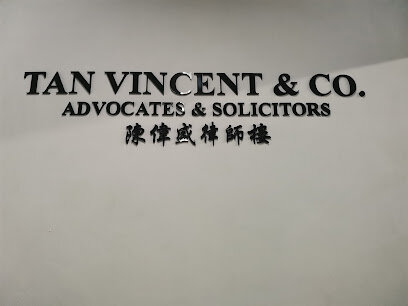Best Collaborative Law Lawyers in Iskandar Puteri
Share your needs with us, get contacted by law firms.
Free. Takes 2 min.
Free Guide to Hiring a Family Lawyer
List of the best lawyers in Iskandar Puteri, Malaysia

About Collaborative Law in Iskandar Puteri, Malaysia
Collaborative Law in Iskandar Puteri, Malaysia is an innovative approach to resolve legal disputes, particularly in family law matters, without going to court. It involves a cooperative process where both parties, along with their respective lawyers, work together to negotiate a settlement. This method focuses on open communication, mutual respect, and creative problem-solving, making it an attractive option for those seeking to maintain a cordial relationship post-dispute, especially in family-related cases such as divorce or child custody arrangements.
Why You May Need a Lawyer
Engaging a lawyer skilled in Collaborative Law can be beneficial in several situations. If you are facing a divorce and wish to avoid the adversarial nature of traditional court proceedings, Collaborative Law offers a structured yet flexible process to discuss and resolve issues amicably. It is also suitable if you seek to maintain privacy, as matters settled collaboratively are generally not part of the public record. Furthermore, if you wish to make decisions that are mutually agreeable rather than having a judge impose them, a lawyer experienced in Collaborative Law can guide this process effectively.
Local Laws Overview
In Iskandar Puteri, Collaborative Law is governed by family law principles found within the larger Malaysian legal framework. The legal process emphasizes mediation and negotiation, promoting resolutions that address the unique needs of each family. Importantly, any agreements made are legally binding once formalized in writing. Although still growing in popularity, Collaborative Law is recognized and supported as a legitimate pathway to conflict resolution, allowing for greater personalization in settlements while aligning with Malaysian legal standards.
Frequently Asked Questions
What is Collaborative Law?
Collaborative Law is a legal process involving both parties and their lawyers working together to resolve disputes without litigation, emphasizing negotiation and cooperation.
Who can participate in a Collaborative Law process?
Anyone involved in a legal dispute where both parties are willing to negotiate in good faith can participate. It is especially common in family law cases like divorce and child custody.
How does Collaborative Law differ from mediation?
While both aim to resolve disputes amicably, Collaborative Law involves each party being represented by their own lawyer throughout the process, whereas mediation is facilitated by a neutral third party who assists the parties in negotiating a settlement.
What happens if an agreement cannot be reached?
If the collaborative process fails, the parties must then seek other forms of dispute resolution, typically through litigation. It's important to note that if this occurs, the Collaborative Law attorneys must withdraw from the case, and new representation is needed for court proceedings.
Are collaborative agreements legally binding?
Yes, once formalized in writing and signed by both parties, collaborative agreements are legally binding and enforceable.
How long does the Collaborative Law process take?
The timeline for Collaborative Law is flexible and varies depending on the complexity of the issues and the willingness of the parties to negotiate. It can be quicker than traditional litigation.
Can Collaborative Law be used for non-family matters?
While most commonly used in family law, Collaborative Law can also be applied in other civil matters where both parties agree to negotiate cooperatively.
What are the costs involved in Collaborative Law?
Costs are generally limited to legal fees and can be less than going to court, as the process may be faster and avoids the cost of a trial. However, fees vary based on the complexity and length of negotiations.
Do I need a lawyer to engage in Collaborative Law?
Yes, you need a lawyer trained in Collaborative Law to represent you, as it is a lawyer-driven process focused on legal negotiation.
Can we switch to traditional litigation if Collaborative Law doesn't work?
Yes, if Collaborative Law does not result in an agreement, you can proceed to traditional litigation, but you will need to engage new legal representation for court proceedings.
Additional Resources
For more information or support, consider reaching out to the local family court services, legal aid organizations, or professional legal bodies in Malaysia that specialize in Collaborative Law. Additionally, the Malaysian Bar Association may have resources and referrals for lawyers experienced in Collaborative Law.
Next Steps
If you decide that Collaborative Law may be the appropriate path for your situation, the next step is to consult with a lawyer experienced in Collaborative Law in Iskandar Puteri. They will provide guidance on initiating the process, help outline your goals, and represent your interests during negotiations, ensuring that the collaborative solutions are equitable and legally sound.
Lawzana helps you find the best lawyers and law firms in Iskandar Puteri through a curated and pre-screened list of qualified legal professionals. Our platform offers rankings and detailed profiles of attorneys and law firms, allowing you to compare based on practice areas, including Collaborative Law, experience, and client feedback.
Each profile includes a description of the firm's areas of practice, client reviews, team members and partners, year of establishment, spoken languages, office locations, contact information, social media presence, and any published articles or resources. Most firms on our platform speak English and are experienced in both local and international legal matters.
Get a quote from top-rated law firms in Iskandar Puteri, Malaysia — quickly, securely, and without unnecessary hassle.
Disclaimer:
The information provided on this page is for general informational purposes only and does not constitute legal advice. While we strive to ensure the accuracy and relevance of the content, legal information may change over time, and interpretations of the law can vary. You should always consult with a qualified legal professional for advice specific to your situation.
We disclaim all liability for actions taken or not taken based on the content of this page. If you believe any information is incorrect or outdated, please contact us, and we will review and update it where appropriate.










